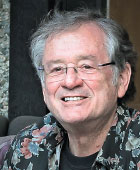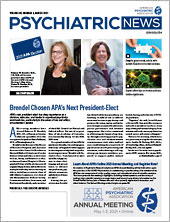Crisis, catastrophe, panic: words that come to mind in the midst of a global assault by an uncontrollable virus. Personal isolation and a rupture of social contacts is just one important response required to defeat this silent threat. Not since World War II, 75 years ago, has there been an event affecting nearly all nations at the same time. In 1945, the conclusion of the war led to an outpouring of revulsion upon the revelation of what had transpired, not only with respect to the horrors of war itself, but also the Nazi war within the war, enacted upon the largely helpless Jews of Europe.
A new vocabulary emerged from the ashes, the language of atrocity. Over time, the words “concentration camp” took on new meaning, and when that was insufficient, an even worse phrase was introduced, “extermination camp.” The world came to know “the Final Solution,” eventually encompassed in the words “Holocaust” in English and “Shoah” in Hebrew. The concept of genocide entered the public awareness. Some responses were the founding of the United Nations, Nazi war crimes trials, and the Convention on the Prevention and Punishment of the Crime of Genocide.
The reverberations of the gratuitous, brutal slaughter of innocents are with us still. It was humanity at its peak of inhumanity. All Jews were condemned to die—even, had they been caught, Albert Einstein and Sigmund Freud.
While my wife and I were in quarantine for 14 days, a friend asked what it was like for me to be confined to my home. She knew my background. It was a good question, for I was confined to “home” for nearly three years, with a Christian family in The Hague, Holland, from 1942 to 1945. As a Jewish baby, I was meant to die. Of the 108,000 Dutch Jews deported, mostly to Auschwitz and Sobibor, about 5,000 returned. Of over 20,000 Jewish children hiding throughout the Netherlands, over half were betrayed, as was Anne Frank and her family.
During my period of hiding, from age 2 through 5, I do not recall complaining or reporting an illness, and I did not cry. Seventy-five years later I ignore illness (at my peril), do not complain, and cry only where I cannot be seen. The first time I remember crying was in protest of having to go to bed when others were out in the street celebrating the end of the war.
I remember hunger. All of Holland was starving during the “hunger winter” of 1944-1945. I can still capture the mealy taste of tulip bulbs on my tongue, but I do not recall the taste of rabbits, occasionally brought home and slaughtered and skinned by my Vader.
Today’s confinement is vastly different, of course. Being pursued by a coronavirus is not personal. We are housebound in comfortable surroundings with a stocked fridge (so far) and televisions that work (so far). But my imagination runs wild. What if we fall ill for any reason and have to go to the hospital?
There is another psychological complication. Having first suffered the separation from my parents, with whom I was miraculously reunited, I experienced a second separation after the war, from the family I had come to think of as mine. I had become “Robbie Munnik.” Some of my anxieties were alleviated by a family friendship between the Munniks and the Krells. But my heart bleeds for children who, for any reason, are in situations that remind me of forced separations. As a doctor who specialized in child and family psychiatry, it is particularly painful for me to witness the virus separating families from loved ones who are in care homes and cannot be visited or the families of first responders, many of whom must leave home to be close to their vital work. These are painful times for so many.
The enormous psychological pressures and psychiatric consequences of being in the trenches have not been seen in such massive numbers for generations. And while many of us must hunker down, millions remain at work delivering mail and food, newspapers, and special services of all kinds.
Now 80, I suddenly belong to the most vulnerable group, the elderly with preexisting conditions who are unlikely to withstand a coronavirus infection. This has me reflecting on survival. As a child of the Holocaust (1.5 million of us were murdered), I carried with me the hope that we would leave a better world than the one I have endured. But instead, I see a spate of genocides in all corners of the globe, the resurgence of anti-Semitism on a massive scale, and an ominous breakdown of conventionally moral and kind behavior. The virus has forced us to see what is happening to our neighbors in cities, provinces, states, and nations. Endless news reports with statistics and images flow through our lives, raising both awareness and anxiety.
Is it too much to hope that we will learn from what we see? Is this the catastrophe that will inform the generations who have largely escaped tragedy on a global scale? Will journalists and politicians impress upon us all what might be a response to this tragedy?
Holocaust education aims to derive lessons from tragedy that inform us how to do better. One such lesson concerns the degree to which so many otherwise good people stood by and did nothing. Almost every survivor can point to one small act by a non-Jewish person that inspired a spark of hope and the strength to go on. In this time of catastrophe, wrought by nature rather than people, small acts of kindness can inspire those who fall ill and those who treat them.
Many have responded heroically to the challenges posed by this virus. But some behave as if they are immune. They are not, nor are their families. These bystanders do not consider the effects of their behavior on the health of others, nor do they pose the question, “Is there something more that I can do?”
This moment in time demands a constructive and collective response to that question. ■
This article is reprinted from The Hidden Child with permission from the Hidden Child Foundation, Anti-Defamation League.

